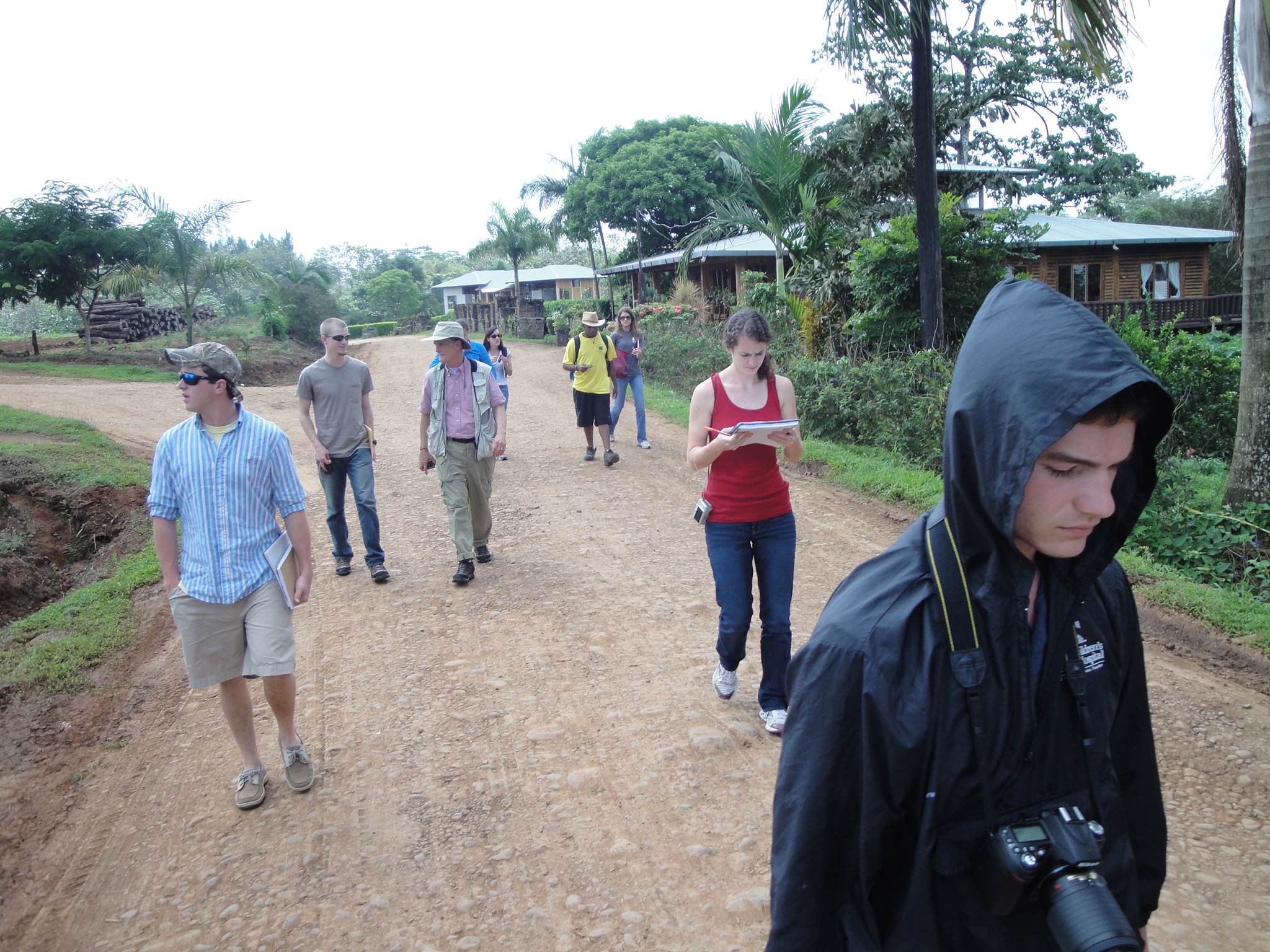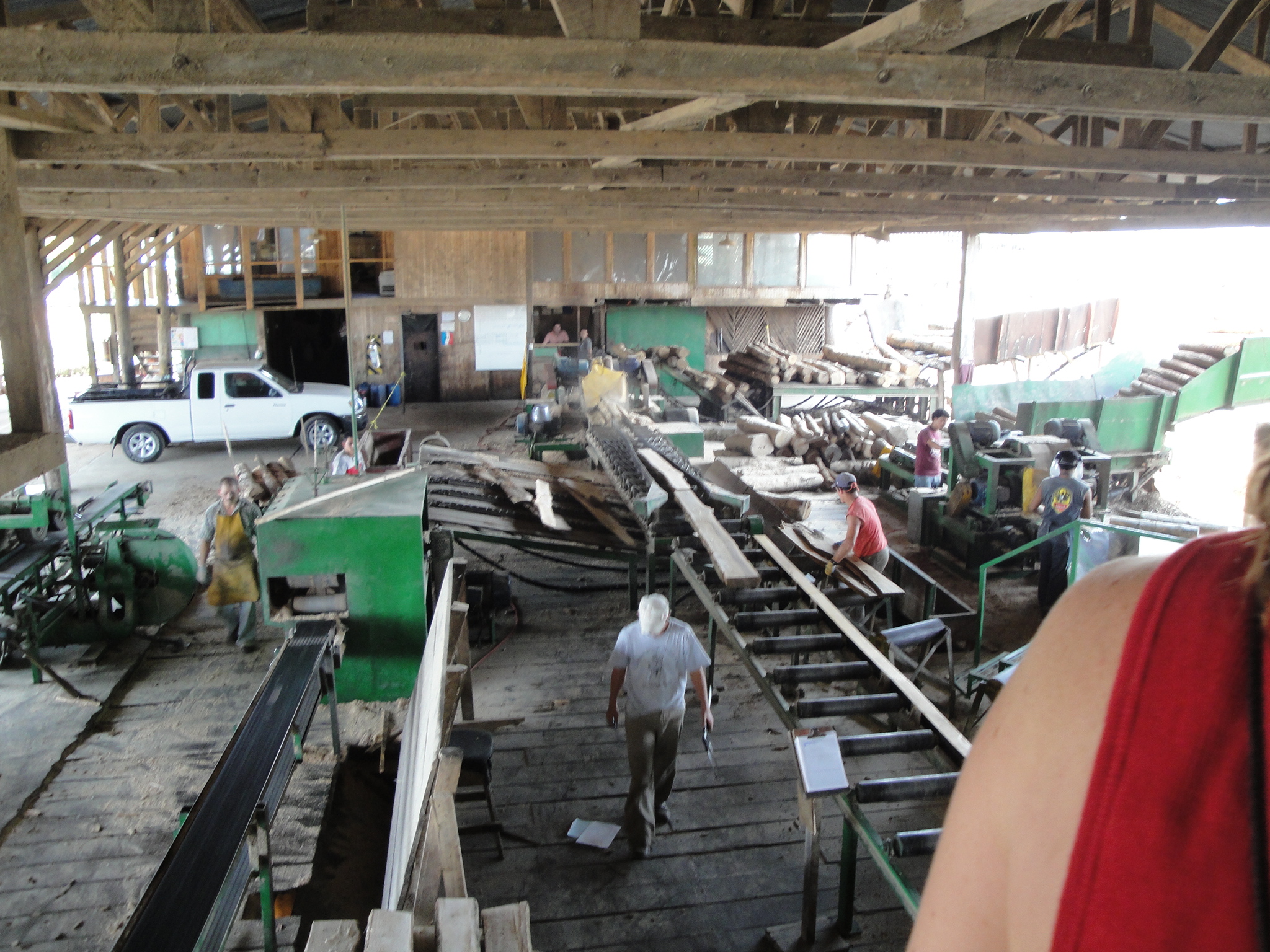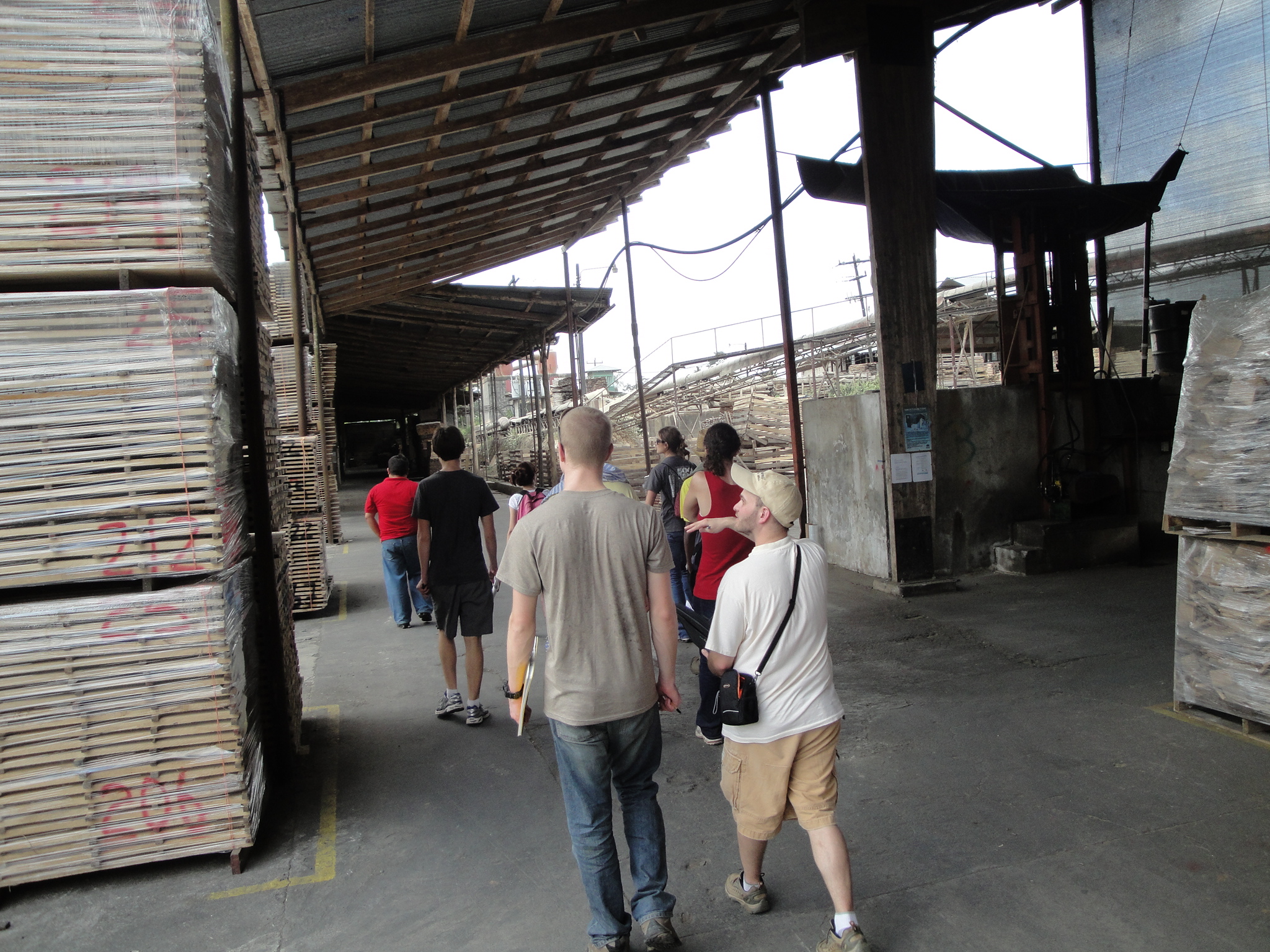As a part of the study abroad course Global Issues in Sustainability taught jointly by professors Henry Quesada and Tom Hammett, a group of 10 Virginia Tech students visited on March 10, 2010 the company Maderas Cultivadas de Costa Rica located in the north region of the small Central American country. The company has been operating since earlies 1980 when started planting gmelina arborea, a tropical hardwood species. In the beginning the company only focused on planting trees on their own land or also renting land from other farmers.
A few years later the company realized that the installed production capacity of the local sawmills was not a good fit for their long term strategy so the firm invested in developing their own value-added processes. Today the company owns more than 10,000 ha of plantations in Costa Rica and Nicaragua. The firm produces plywood, lumber, pallets, and engineering lumber and employs more than 400 people through the whole supply chain.

The firm has carried on extensive research to learn how to grow trees that best fit customer requeriments. Controlling density, color, and the presence of knots are the customer requirements that the firm can control today by cloning trees that can match those requirements. After trees have been planted, the company used different forestry management practices to grow and select the best trees. The best trees are used for veneer for the plywood process. Second quality logs are used for lumber and pallet production, and the other logs are used for their engineering products. Because most of the logs are considered small diameter logs, special equipment was developed to mill these types of logs. The company has a kiln drying capacity of 400,000 board feet and most of the residues are used as fuel for the boiler and to co-generate their own electricity. The company has developed a top-of-the-line engineering lumber process that is capable of producing glued up panels, and beams by using small pieces and finger joint technology.

Today the company continues its growing by acquiring more land in Nicaragua because the land in Costa Rica has become very expensive compare to the neighboring country. Besides having a vertical integration from forestry through end customer, the company is recognized as a success history en the wood products industry in latin america.

